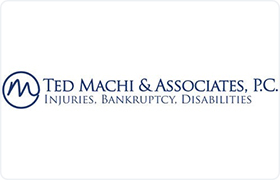Fort Worth Collection Lawyer, Texas
Sponsored Law Firm
-
 x
x

Click For More Info:
-
Machi & Associates, P.C.
1521 North Cooper Street Suite 550 Arlington, TX 76011» view mapAccident & Injury, Bankruptcy, Social Secuirty We Fight So You Don't Have To
Our professional team of attorneys and staff provide the experience and expertise needed to effectively handle your case.
800-804-0771
Michael Raymond Cramer
Business, Business Organization, Collection, Construction, Civil & Human Rights
Attorney Cramer has more than 30 years of practice. Michael developed a statewide practice focused on litigation. His cases range from breach of contr... (more)
S. Aaron Holland
Bankruptcy, Corporate, Collection, Litigation
Status: In Good Standing *Status is reviewed annually. For latest information visit here
Diana S. Weitzel
Adoption, Alimony & Spousal Support, Child Support, Collection
Status: In Good Standing *Status is reviewed annually. For latest information visit here
FREE CONSULTATION
CONTACTPamela L. Wilder
Adoption, Alimony & Spousal Support, Child Support, Collection
Status: In Good Standing *Status is reviewed annually. For latest information visit here
FREE CONSULTATION
CONTACTBill Venegoni
Age Discrimination, Americans with Disabilities Act , Mesothelioma, Collection
Status: In Good Standing *Status is reviewed annually. For latest information visit here
Susan D. Oliver
Corporate, Collection, Construction, Employment
Status: In Good Standing *Status is reviewed annually. For latest information visit here
David L. Paschall
Litigation, Election & Political, Corporate, Collection
Status: In Good Standing *Status is reviewed annually. For latest information visit here
Ashley Wysocki
Litigation, Divorce & Family Law, Collection, Bankruptcy
Status: In Good Standing *Status is reviewed annually. For latest information visit here
J. P. LeCompte
Consumer Protection, Corporate, Business Organization, Collection
Status: In Good Standing *Status is reviewed annually. For latest information visit here
Shanna Cargill
Consumer Protection, Corporate, Business Organization, Collection
Status: In Good Standing *Status is reviewed annually. For latest information visit here
 Ted Machi Arlington, TX
Ted Machi Arlington, TX Practice AreasExpertise
Practice AreasExpertise
